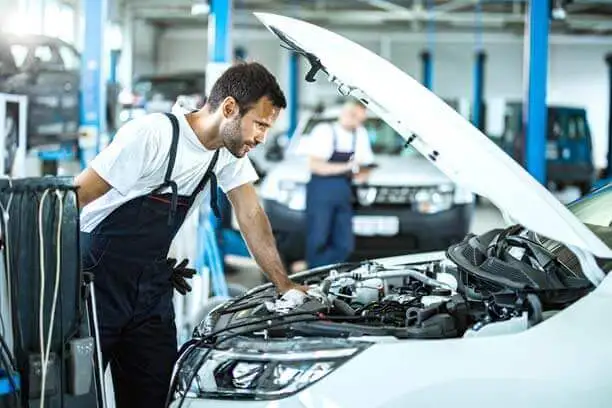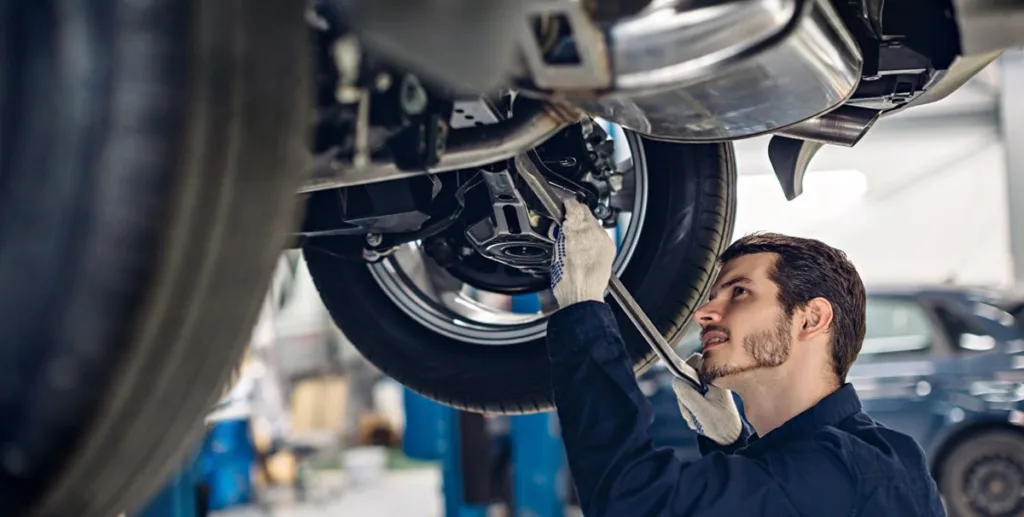All Categories
Featured
When your auto overheats, it can really feel like a major emergency, but staying tranquil and complying with the best actions can protect against serious engine damages and assistance obtain you back when driving safely. In this article, we'll explore what to do if your automobile overheats and supply preventative ideas to minimize the threat of overheating in the future.
What to Do If Your Car Overheats. Pull Over to a Safe Area The very first and most essential action if your cars and truck starts to get too hot is to draw over to a safe area as quickly as feasible. Turn on your threat lights and lead your vehicle to the shoulder or right into a car park. Keeping your cars and truck running while it's overheated can create serious damages to the engine, so it's critical to shut the engine off immediately.
Allow the Engine Cool Down Once you've safely quit, enable the engine to cool off. You need to never attempt to open up the radiator cap while the engine is still hot, as the release of steam or hot coolant can cause burns. Wait a minimum of 15-20 minutes to allow the engine temperature to drop to a more secure degree prior to proceeding.
![]()
Examine the Coolant Degree After the engine has cooled, examine the coolant levels by inspecting the reservoir or radiator. Leading it off with a blend of coolant and water (as defined by your automobile's maker) if it's reduced. Always utilize care when opening up the coolant tank, as stress may have built up.
Seek Noticeable Leakages While you await the engine to cool, aesthetically evaluate the radiator, hoses, and coolant tank for any kind of visible leakages or cracks. A leaking radiator or hose is an usual root cause of overheating. It's much better to call a tow service than danger driving further and creating extra damage. if you locate a significant leak.
Restart the Engine After permitting the engine to cool and guaranteeing the coolant is topped off, begin the engine and monitor the temperature level scale. If the temperature level proceeds to climb swiftly, it's best to close the engine off and ask for roadside assistance or a tow to the nearby mechanic.
![]()
Just How to avoid Overheating in the Future. On A Regular Basis Inspect Coolant Degrees Among the simplest methods to stop getting too hot is by maintaining the best level of coolant. Over time, coolant can evaporate, so consistently check the coolant degrees in the tank. Low coolant levels can trigger the engine to overheat rapidly, so leading it off as required.
Inspect the Radiator The radiator plays a crucial duty in maintaining the engine cool. Periodically check the radiator for any type of clogs, dust, or particles that could obstruct airflow. If you notice any kind of indicators of damages, such as rust or leaks, have it fixed or changed immediately.
Change the Thermostat and Water Pump A malfunctioning thermostat or water pump is a common cause of overheating. The thermostat regulates the circulation of coolant, while the water pump distributes it through the engine. It can stop correct air conditioning if either component is defective. When required., have your mechanic check these parts consistently and replace them.
Flush the Air conditioning System In time, coolant can weaken and come to be inadequate, causing an accumulation of debris in the system. Purging the cooling system every 30,000 miles, or as advised in your automobile's guidebook, assists to get rid of any sludge or buildup and guarantees the cooling system is operating properly.
Display the Condition of the Hoses The hoses in your automobile's air conditioning system can break or split in time. Evaluate the pipes for any indications of wear, such as bulging, cracks, or leaks, and replace them if needed. Preventing coolant leakages can go a lengthy method in staying clear of getting too hot.
![]()
Drive Responsibly Aggressive driving, such as increasing promptly or driving at broadband, places additional pressure on your engine and its cooling system. Try to drive at modest rates, particularly on hot days or when driving on steep inclines, to lower the opportunities of getting too hot.
Prevent Overwhelming Your Car Bring too much weight in your automobile places tension on the engine and air conditioning system. Constantly bear in mind your car's weight limitation, especially if you're hauling hefty lots, pulling a trailer, or driving lengthy distances in hot climate.
Verdict. A getting too hot car can be a frightening experience, yet recognizing just how to respond and prevent it can save you time, money, and potential engine damage. Always check your coolant levels, evaluate crucial components like the radiator, thermostat, and hoses, and follow a regular upkeep routine. By remaining on top of your automobile's cooling system, you can decrease the danger of getting too hot and appreciate a smoother, more secure driving experience.
What to Do If Your Car Overheats. Pull Over to a Safe Area The very first and most essential action if your cars and truck starts to get too hot is to draw over to a safe area as quickly as feasible. Turn on your threat lights and lead your vehicle to the shoulder or right into a car park. Keeping your cars and truck running while it's overheated can create serious damages to the engine, so it's critical to shut the engine off immediately.
Allow the Engine Cool Down Once you've safely quit, enable the engine to cool off. You need to never attempt to open up the radiator cap while the engine is still hot, as the release of steam or hot coolant can cause burns. Wait a minimum of 15-20 minutes to allow the engine temperature to drop to a more secure degree prior to proceeding.

Examine the Coolant Degree After the engine has cooled, examine the coolant levels by inspecting the reservoir or radiator. Leading it off with a blend of coolant and water (as defined by your automobile's maker) if it's reduced. Always utilize care when opening up the coolant tank, as stress may have built up.
Seek Noticeable Leakages While you await the engine to cool, aesthetically evaluate the radiator, hoses, and coolant tank for any kind of visible leakages or cracks. A leaking radiator or hose is an usual root cause of overheating. It's much better to call a tow service than danger driving further and creating extra damage. if you locate a significant leak.
Restart the Engine After permitting the engine to cool and guaranteeing the coolant is topped off, begin the engine and monitor the temperature level scale. If the temperature level proceeds to climb swiftly, it's best to close the engine off and ask for roadside assistance or a tow to the nearby mechanic.

Just How to avoid Overheating in the Future. On A Regular Basis Inspect Coolant Degrees Among the simplest methods to stop getting too hot is by maintaining the best level of coolant. Over time, coolant can evaporate, so consistently check the coolant degrees in the tank. Low coolant levels can trigger the engine to overheat rapidly, so leading it off as required.
Inspect the Radiator The radiator plays a crucial duty in maintaining the engine cool. Periodically check the radiator for any type of clogs, dust, or particles that could obstruct airflow. If you notice any kind of indicators of damages, such as rust or leaks, have it fixed or changed immediately.
Change the Thermostat and Water Pump A malfunctioning thermostat or water pump is a common cause of overheating. The thermostat regulates the circulation of coolant, while the water pump distributes it through the engine. It can stop correct air conditioning if either component is defective. When required., have your mechanic check these parts consistently and replace them.
Flush the Air conditioning System In time, coolant can weaken and come to be inadequate, causing an accumulation of debris in the system. Purging the cooling system every 30,000 miles, or as advised in your automobile's guidebook, assists to get rid of any sludge or buildup and guarantees the cooling system is operating properly.
Display the Condition of the Hoses The hoses in your automobile's air conditioning system can break or split in time. Evaluate the pipes for any indications of wear, such as bulging, cracks, or leaks, and replace them if needed. Preventing coolant leakages can go a lengthy method in staying clear of getting too hot.

Drive Responsibly Aggressive driving, such as increasing promptly or driving at broadband, places additional pressure on your engine and its cooling system. Try to drive at modest rates, particularly on hot days or when driving on steep inclines, to lower the opportunities of getting too hot.
Prevent Overwhelming Your Car Bring too much weight in your automobile places tension on the engine and air conditioning system. Constantly bear in mind your car's weight limitation, especially if you're hauling hefty lots, pulling a trailer, or driving lengthy distances in hot climate.
Verdict. A getting too hot car can be a frightening experience, yet recognizing just how to respond and prevent it can save you time, money, and potential engine damage. Always check your coolant levels, evaluate crucial components like the radiator, thermostat, and hoses, and follow a regular upkeep routine. By remaining on top of your automobile's cooling system, you can decrease the danger of getting too hot and appreciate a smoother, more secure driving experience.
Latest Posts
Check Out Brake Repair & More: Comprehensive Auto Care Solutions from Montclare Auto Repair
Published May 28, 25
1 min read
Unlock WyHy Federal Credit Union – Wyoming’s Best Banking Choice for Your Money Goals
Published May 26, 25
1 min read
Join Your Financial Partner at WyHy – Top Benefits for Your Goals
Published May 25, 25
1 min read
More
Latest Posts
Check Out Brake Repair & More: Comprehensive Auto Care Solutions from Montclare Auto Repair
Published May 28, 25
1 min read
Unlock WyHy Federal Credit Union – Wyoming’s Best Banking Choice for Your Money Goals
Published May 26, 25
1 min read
Join Your Financial Partner at WyHy – Top Benefits for Your Goals
Published May 25, 25
1 min read